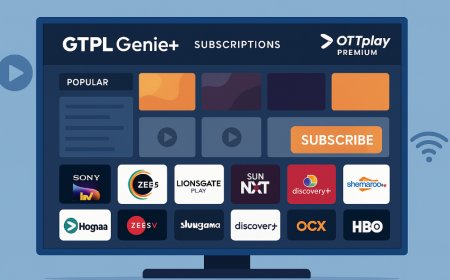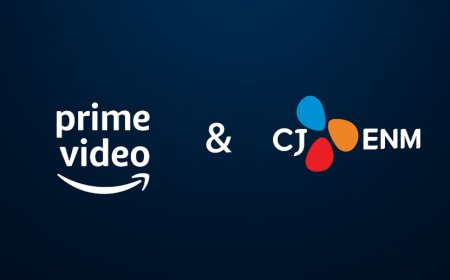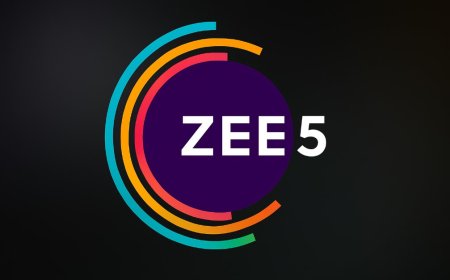Meta Accelerates Push into Retail Media Space, Challenging E-Commerce Giants for Advertising Dollars
Meta Platforms is aggressively expanding into the booming retail media market with enhanced shopping features across Facebook and Instagram, strategic data partnerships with retailers, and specialized tools for businesses of all sizes, positioning itself as a crucial complement to existing retail networks by combining unparalleled user scale with sophisticated targeting capabilities as retail media spending is projected to exceed $100 billion globally in 2025.

Meta Platforms Inc. is making an aggressive move to capture a larger share of the rapidly expanding retail media market, positioning its suite of apps as essential channels for brands looking to influence purchasing decisions across the digital shopping journey. This strategic pivot comes as retail media spending is projected to exceed $100 billion globally in 2025, representing one of the fastest-growing segments in digital advertising.
Strategic Expansion of Shopping Features
In recent months, Meta has significantly accelerated the rollout of new shopping-focused features across its platforms, creating a more comprehensive ecosystem for discovery, consideration, and purchase. These developments expand upon the company's earlier forays into social commerce and signal a determined effort to compete directly with established retail media networks.
"We're building a full-funnel solution that connects consumers' product discovery on our platforms directly to purchase intent and conversion," explained Sarah Johnson, Meta's newly appointed Vice President of Retail Media Partnerships, during a presentation to advertisers last week. "Our advantage lies in the unparalleled scale of our user base combined with the precision of our targeting capabilities."
The company's latest initiatives include:
- Enhanced Shop sections across Facebook and Instagram with improved product tagging capabilities and advanced catalog management tools
- Expanded checkout functionality allowing users to complete purchases without leaving Meta's platforms
- New shopping-focused ad formats designed specifically for retail partners, including shoppable video units and interactive product demonstrations
- Advanced retail analytics dashboard providing brands with detailed attribution data connecting social engagement to purchase behavior
- Integration with major e-commerce platforms creating seamless inventory and order management for retailers of all sizes
Industry analysts note that these developments represent Meta's most cohesive effort yet to create an end-to-end shopping experience within its ecosystem.
Competing for Growing Retail Media Budgets
Meta's push comes as retail media has emerged as one of digital advertising's most coveted growth sectors. Traditional e-commerce players like Amazon, Walmart, and Target have established sophisticated advertising platforms that leverage their first-party purchase data, creating high-margin revenue streams that have attracted significant brand investment.
"Retail media has become a priority for brands because it connects advertising directly to purchase behavior," explained David Chen, senior analyst at Digital Commerce Partners. "When advertising can be tied directly to sales, ROI becomes much easier to demonstrate, making these platforms increasingly attractive as traditional digital advertising faces challenges with measurement and attribution."
Meta's advantage in this competition stems from its massive user base—approximately 3.5 billion monthly active users across its family of apps—and its sophisticated targeting capabilities. While e-commerce platforms excel at reaching consumers with high purchase intent, Meta offers unparalleled scale for building awareness and consideration earlier in the shopping journey.
"What we're seeing is Meta positioning itself as a crucial complement to existing retail media networks," Chen noted. "They're essentially saying to brands: 'Amazon and Walmart can help you capture demand, but we can help you create it.'"
Data Partnerships and First-Party Insights
Central to Meta's retail media strategy is a series of data partnerships with major retailers and payment processors. These collaborations allow for more sophisticated measurement of advertising impact while navigating the increasingly complex privacy landscape.
The company has established data clean room arrangements with several major retail partners, enabling privacy-compliant matching of Meta engagement data with actual purchase behavior. This approach helps address the attribution challenges created by Apple's App Tracking Transparency framework and the ongoing deprecation of third-party cookies.
"Meta is working to recreate the closed-loop measurement capabilities that have made retail media networks so attractive to advertisers," explained Maria Rodriguez, e-commerce strategy director at Horizon Media. "By partnering directly with retailers, they can demonstrate advertising effectiveness without relying on individual-level tracking that raises privacy concerns."
These partnerships represent a significant evolution in Meta's approach to retail, moving from purely social commerce to a more integrated position within the broader retail ecosystem.
Small Business Focus Differentiates Offering
While competing for budgets from major consumer brands, Meta has also developed specialized tools aimed at small and medium-sized retailers who may lack the resources to build their own media networks.
"We recognize that not every retailer can become an Amazon or a Walmart with their own sophisticated advertising platform," said Johnson. "Our tools allow smaller merchants to leverage the power of retail media without the enormous technical investment typically required."
These small business offerings include simplified campaign management tools, automated product feeds, and AI-powered optimization specifically designed for retailers with limited advertising expertise.
This approach allows Meta to tap into the long tail of retail advertisers while providing a distinct value proposition compared to e-commerce giants that primarily cater to established brands with substantial advertising budgets.
Evolving Platform Capabilities
Meta's push into retail media also involves significant technical enhancements to its platforms. Instagram has introduced more sophisticated product tagging capabilities in both posts and Stories, while Facebook has revamped its Marketplace to more seamlessly integrate with business catalogs.
Perhaps most notably, the company has expanded its augmented reality shopping features, allowing users to virtually "try on" products ranging from cosmetics to furniture. These interactive experiences create engagement opportunities that traditional retail media typically lacks.
"What Meta offers that pure-play retail media networks can't match is the engagement factor," noted Rodriguez. "Shopping on Amazon is transaction-focused, but discovering products on Instagram or Facebook has a social and entertainment component that creates different types of opportunities for brands."
The company has also made significant investments in AI-powered recommendation systems that suggest products based on users' content consumption patterns, creating more organic discovery opportunities for retail partners.
Courting Retail Partners
Meta's strategy includes aggressive outreach to retailers who may have previously viewed the platform primarily as a brand marketing channel rather than a direct response vehicle.
The company has established a dedicated retail partnerships team focused on onboarding major merchants and demonstrating the platform's ability to drive measurable sales outcomes. These efforts include case studies highlighting success stories across various retail categories and special incentives for retailers who fully integrate their product catalogs with Meta's platforms.
"We're seeing significant interest from retailers who have previously focused their digital budgets on search and their own websites," Johnson explained. "As the digital and physical shopping journeys become increasingly intertwined, brands recognize they need to be present throughout the entire consideration process, not just at the point of purchase."
This approach positions Meta as a complement rather than a direct competitor to retailers' own media networks, potentially easing concerns about cannibalization.
Challenges and Competition
Despite its advantages in scale and engagement, Meta faces significant challenges in its retail media ambitions. Amazon's advertising business continues to grow at an impressive rate, with the company's unparalleled insight into actual purchasing behavior remaining a compelling advantage.
Additionally, retail media networks operated by major chains like Walmart, Target, and Kroger have become increasingly sophisticated, offering brands precise targeting based on actual purchase history rather than inferred interest.
"The fundamental question for Meta is whether they can demonstrate the same level of purchasing intent that dedicated e-commerce platforms naturally provide," Chen observed. "Social discovery is powerful, but many brands still allocate their highest-priority spending to platforms where consumers are explicitly in shopping mode."
Privacy changes across the digital ecosystem also present ongoing challenges for Meta's attribution capabilities, though the company's retail partnerships strategy appears designed specifically to address these limitations.
Industry Impact and Outlook
Market reaction to Meta's retail media push has been largely positive, with the company's stock seeing modest gains following recent announcements about expanded shopping capabilities. Retail partners participating in early testing have reported promising results, with several major brands increasing their investment in Meta's platforms specifically for retail-focused campaigns.
"What we're seeing is the next evolution of social commerce," said Rodriguez. "Rather than trying to turn Instagram or Facebook into standalone shopping destinations, Meta is positioning its platforms as essential components of an omnichannel retail strategy. That's a more realistic approach that aligns with how consumers actually shop today."
As the battle for retail media budgets intensifies, industry observers expect continued innovation and potential consolidation. Some analysts speculate that Meta may pursue acquisitions of specialized retail technology providers to further enhance its offerings in this space.
"The lines between media platforms and retail platforms continue to blur," Chen concluded. "Meta's aggressive move into this space signals their recognition that retail media represents one of the most significant growth opportunities in digital advertising today. We're likely to see even more convergence between social platforms, e-commerce, and traditional retail as this trend accelerates."
For brands and retailers navigating this evolving landscape, the expansion of retail media options presents both opportunities and challenges. While more platforms create additional complexity in media planning, they also provide new ways to reach consumers throughout the increasingly fragmented shopping journey.
Meta's entrance as a major player in retail media ensures that competition for these valuable advertising dollars will only intensify in the months and years ahead.
This article is based on publicly available information about Meta Platforms Inc. and industry analysis. All mentioned trademarks belong to their respective owners.
What's Your Reaction?
 Like
0
Like
0
 Dislike
0
Dislike
0
 Love
0
Love
0
 Funny
0
Funny
0
 Angry
0
Angry
0
 Sad
0
Sad
0
 Wow
0
Wow
0











































